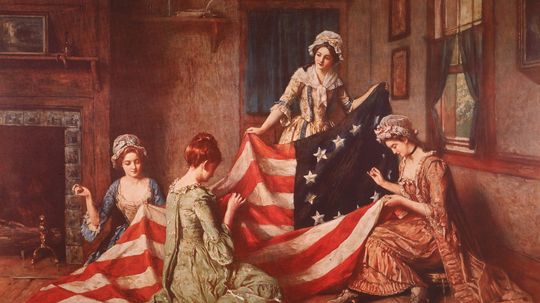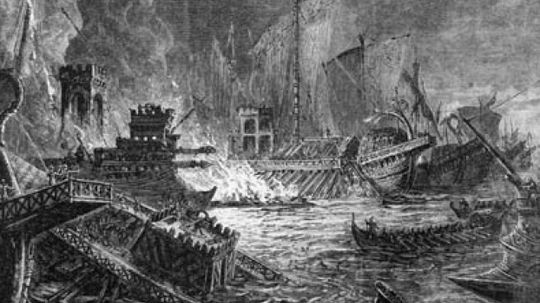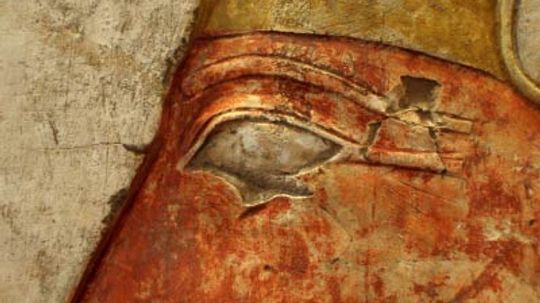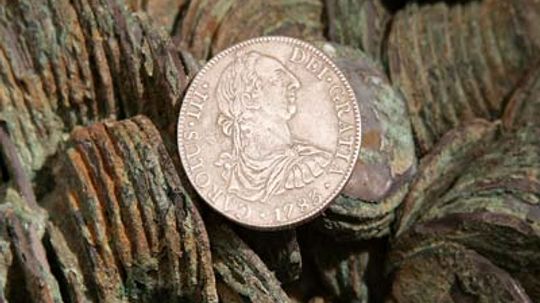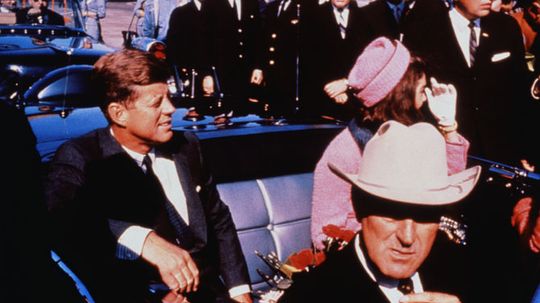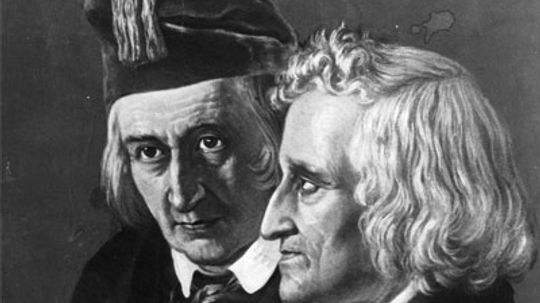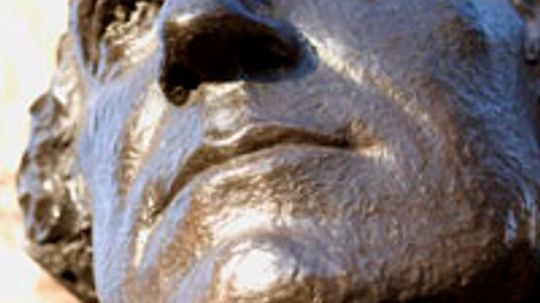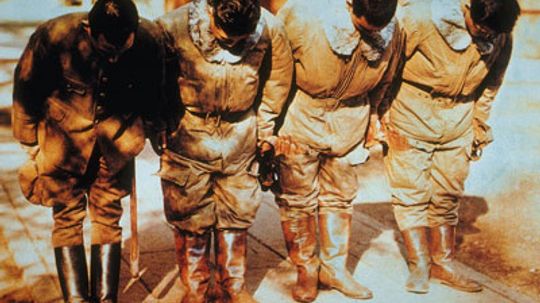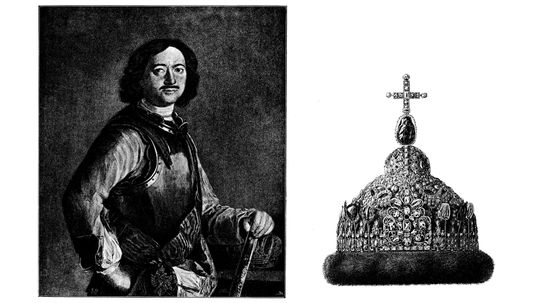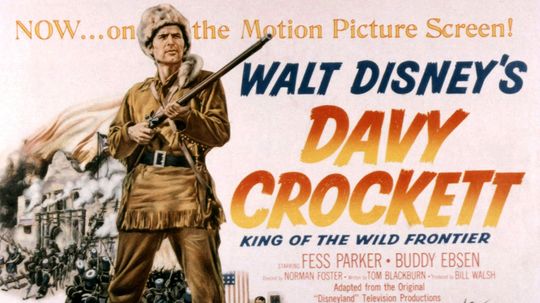History vs. Myth
You don't need fiction when history provides you with tales as crazy as the ones we've collected for you. Read up while your jaw drops.

The SS Edmund Fitzgerald and a Fateful Night on Lake Superior

OceanGate: What Went Wrong and Why

What Happened to MH370, the Missing Malaysia Airlines Flight?

The Most Powerful People in the World Aren't Always the Richest
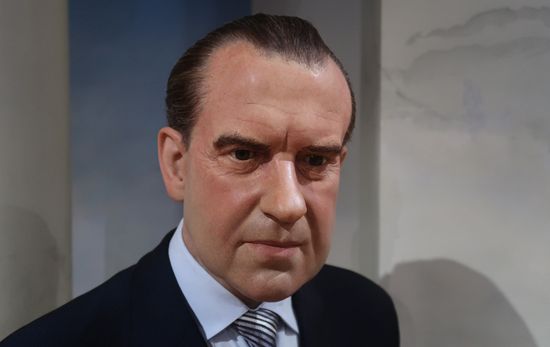
The Youngest Vice President in U.S. History (and 5 Close Contenders)

Catherine the Great's Furniture: Erotic Easter Egg or Petty Hoax?

Why Did the USSR Fall? The Real Costs of Becoming a Superpower

Why Did the Berlin Wall Fall?

Why Did the Roman Empire Fall? Corruption, Inflation, and Division

There Are Castles in Ohio? No Foolin'?

10 Least Diverse States in the U.S.

10 Most Haunted Places in America: Stanley Hotel, Queen Mary, and More

Why Did Ancient Egypt Fall When Rome Entered the Picture?

Why Did Babylon Fall? Lessons in History and Religion

Why Did the Aztec Empire Fall? How Indigenous Allies Helped the Spanish

Hiroshima Shadows Preserve One of History's Darkest Moments
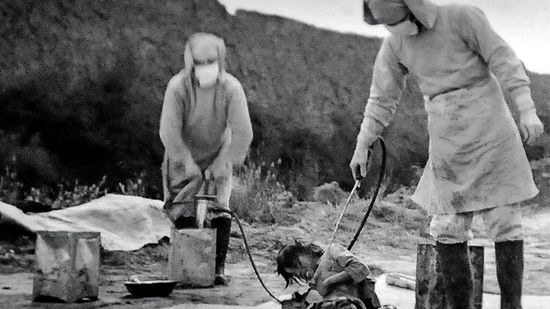
Unit 731: Inhumane Medical Experimentation During WWII
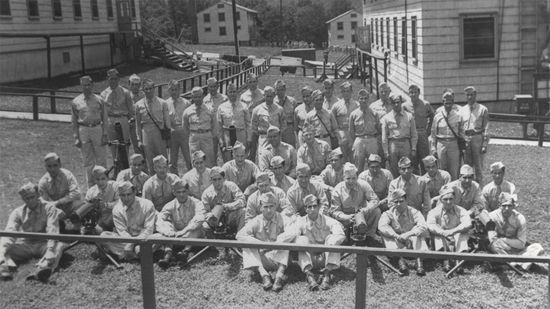
How the Ritchie Boys, Secret Refugee Infiltrators, Took on the Nazis
Learn More / Page 6
Classic American lore would have us believe that Betsy Ross made the first U.S. flag, but some historians dismiss this as just a tale. So, who's right? If not Betsy, then who made the first flag?
When the U.S. president issues an executive order, he means business. These orders call for complete cooperation from federal agencies and officials. What was so remarkable about No. 9981?
By Jane McGrath
The Warren Commission published its findings on President John F. Kennedy's assassination in a report in 1964. So why do people still ask who killed JFK?
Advertisement
In ancient Egypt, the ultimate political power couple was Mark Antony and Cleopatra. Their hopes of building a massive of empire hinged on the fateful Battle of Actium.
We can't quite figure out why rock stars such as Pete Wentz wear eye liner. But ancient Egyptian men had good reason to apply eye makeup, pluck their brows and don hair extensions.
Before Martin Luther King Jr., another man advocated civil disobedience: Gandhi. When India was under Britain's thumb, Gandhi's salt march became his most successful campaign in history.
By Jane McGrath
It's the garnish of choice for eggnog, and some say it's an aphrodisiac. Nutmeg used to be a really hot commodity -- so hot, the Dutch thought it was more valuable than Manhattan.
By Jane McGrath
Advertisement
You may have heard your parents say, "I know what's best for you." In the 14th century, some Christian parents thought sacrificing their children to slavery was a benevolent measure.
By Jane McGrath
You don't look fat in those pants. I am not a crook. I never met her. Lots of us lie, but some lies are more detrimental than others. What are some of the biggest whoppers ever told?
By Alia Hoyt & Jane McGrath
Shipwrecks have been known to increase bank accounts. But only one has been known to double the size of an entire country. What happened to El Cazador?
A band of men assaulted the pope to force him out. When that failed, the pope sought asylum from the king. How did that form the Holy Roman Empire?
Advertisement
At a Harvard commencement, Sec. of State George Marshall gave a short speech about economic recovery, which morphed into a big program called the Marshall Plan. What was it about?
These films look like blooper reels when you compare them to history books. From anachronisms to flat-out lies, creative license reigns in this list.
By Jane McGrath
Many of the world's people regard the Bible as a sacred text that's integral to their daily lives. So what inspired a U.S. president to cut up a Bible and take out sections he disapproved of?
By Jane McGrath
You've heard the fairy tale about the pied piper and how he lures away Hamelin's rats -- and the town's children when the mayor won't pay up. It it true? One thing's for sure: You won't be reading this article to your children as a bedtime story.
By Jane McGrath
Advertisement
If there's one time of day that holds special significance for older Argentineans, it's probably 8:25 p.m. At that minute, on July 26, 1952, Eva Peron died of cancer at age 33. But the popular first lady wouldn't be buried for more than 20 years.
Most people can recount a rough outline of Joan of Arc's story: A young French girl hears voices, leads troops into battle and is burned at the stake as a heretic. But she was put to death for committing a rather unusual crime.
Thanks to smoky-eyed Cleopatra, the notion of liberated women in ancient Egypt isn't that hard to accept. Even the delicate features of Nefertiti's bust exude an air of authority and confidence. But was feminism alive and well along the Nile?
When you're memorizing dates in school, it's easy to think of history as a set of immutable truths. But some scholars say it's a living, evolving subject. And when you're discussing controversial topics like Nazi Germany, this raises some eyebrows.
Advertisement
World War II ended in 1945, but some soldiers in the dense jungles of Pacific islands didn't get the memo. What did it take to get them to stop fighting?
By Josh Clark
The name is synonymous with fine chocolates and a tawdry costume. But just who was Lady Godiva? And what inspired her to disrobe and ride through town?
Several ancient texts cite the story of Noah, a man who built a giant vessel, filled it with animals and endured a flood. Did this event play out in history?
He'd been shot in the back, had no pulse, and yet those piercing green eyes opened wide when his murderers shook his limp body. Why wouldn't the bearded mystic die?
Advertisement
In the 17th and 18th centuries, the most fashionable Europeans gazed upon wunderkammern, or cabinets of curiosity. But Peter the Great's collection didn't appeal to those with weak stomachs.
By Josh Clark
Maybe you've sung along with that well-known tune: "Davy, Davy Crockett, king of the wild frontier." But have you ever wondered how he earned that royal title?
By Josh Clark
